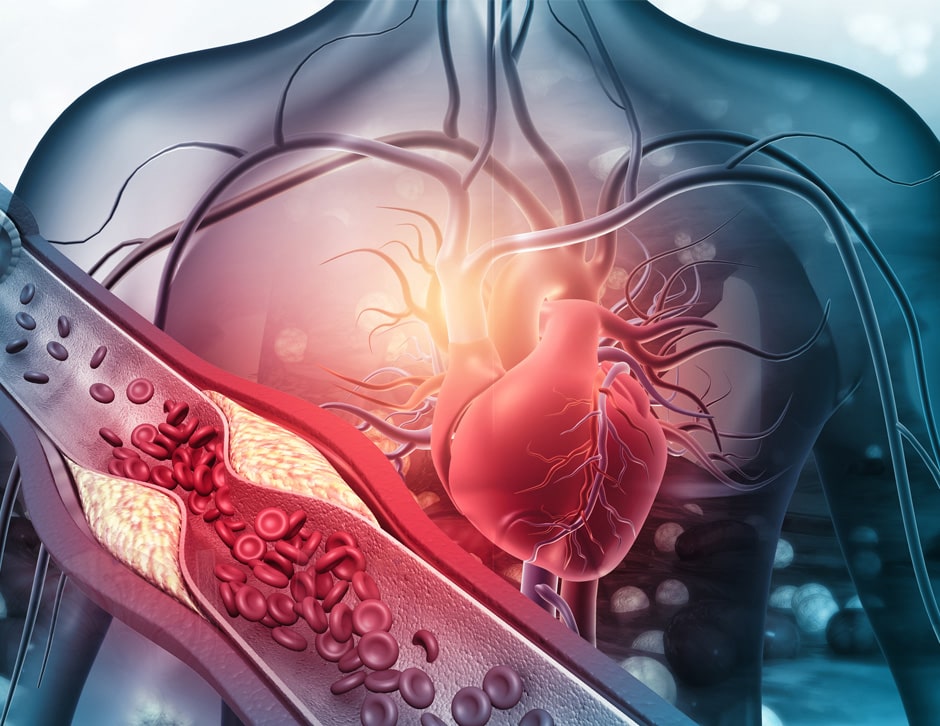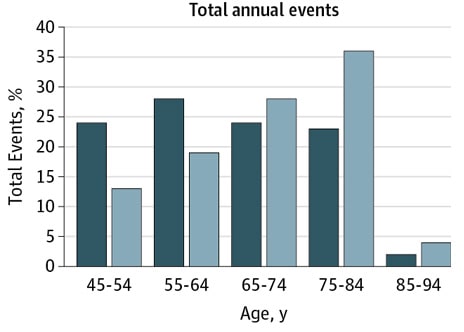
A quick overview of what we’ll cover in this post:
- How common heart disease is
- When heart disease starts and what causes it
- How to assess your risk
Heart disease is the leading cause of death in the U.S. In fact, heart disease is responsible for an estimated 1 in every 5 deaths in the U.S. every year, with someone dying of a heart attack every 40 seconds. For many, that tragic event is often the very first sign of disease.
It may seem surprising, then, that despite being the leading cause of death, heart disease is also incredibly preventable–especially if you start early. So how can you prevent heart disease?
At AgelessRx, we believe the first step in reducing your risk is understanding your risk and what contributes to it. There are plenty of free tools that can help you better assess whether your heart health is optimal, including this 30-year risk calculator. Stick around to learn more about how common heart disease is, when people are likely to develop this pervasive condition, and what you can do to reduce your risk.
When does heart disease start?
Starting heart disease prevention efforts early in life is important.
That’s because heart disease isn’t just a problem for older adults. Over half of preventable heart disease deaths happen in people under 65, while a quarter of all heart disease events in men happen before the age of 54.
Basically, damage leading to heart disease starts earlier than you might think. One study of 30-year old soldiers found that almost 75% of them already had lesions in their arteries, a sign of heart disease (1). And while these soldiers may not have had full-blown heart disease, their risk was increasing for life-threatening cardiac events. In fact, the effects of cardiovascular disease can start to accumulate at least ten years prior to experiencing any kind of serious complication, such as a heart attack.
What causes heart disease?
While there are some genetic factors linked to heart disease (such as risks you inherit from a parent), most causes of heart disease involve lifestyle habits, such as:
- Smoking
- Poor diet
- Lack of physical activity
These lifestyle choices lead to LDL cholesterol build up in your arteries and artery damage.
Cholesterol
Excess amounts of LDL cholesterol in our arteries is a leading risk factor for heart disease. While our body makes LDL cholesterol to support healthy bodily functions, lack of exercise and poor diet can cause excess LDL cholesterol to build up in our arteries, putting us at risk for several cardiac events like heart attacks.
Artery damage
Damaged arteries can also contribute to heart disease. When arteries are damaged, they don’t pump blood effectively, which means the heart doesn’t get the blood it needs.
Several things can damage arteries, including:
- LDL cholesterol
- Hypertension, which can put excess pressure on artery walls and weaken them.
- Smoking
- Overall poor metabolic health (high LDL cholesterol, blood sugar levels, blood pressure, etc.)
Ready to address your risk of heart disease?
AgelessRx has several tools to help you understand your heart disease risks and choose protective interventions that work with you.
Free Personalized Wellness Assessment
Our free Personalized Wellness Assessment provides a range of information about different aspects of your health, including sleep, diet, and exercise habits. You’ll get an overall longevity score and tips and strategies to help improve your longevity. You can also assess your risk of developing a heart condition over the next 30 years and learn ways you can lower that risk.
AgelessRx Core Longevity Panel
It should be easy to assess your risk of heart disease and overall heart health. With our Core Longevity Panel, we make it easy.
Our lab-based Core Longevity Panel gives you detailed insight into what’s driving your risk of heart disease.
References:
- Stary HC. Evolution and progression of atherosclerotic lesions in coronary arteries of children and young adults. Arteriosclerosis. 1989;9(suppl I):I-19-I-32.
Note: The above statements have not been evaluated by the Food and Drug Administration. This product is not intended to diagnose, treat, cure, or prevent any disease.
